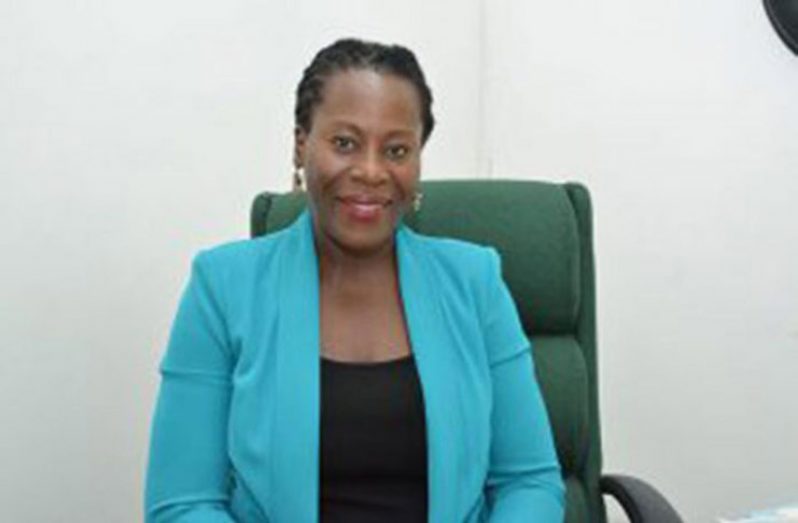THE Department of Environment will be intensifying consultations on the ban on single-use plastics, ahead of the 2021 deadline, Director of the Department of Environment, Ndibi Schwiers, has announced.
The consultations, in part, will be used to influence the crafting of a bill intended to amend the Environmental Protection Act, 1996, and legally enforce the ban on single-use plastics.
These moves are aligned with a policy decision taken by the Government in 2018 to ban the importation, manufacture, sale and use of single-use plastic bags and other single-use plastic products including plastic plates, cups and utensils, from 2021.
Single-use plastics are plastic products that are used only once before they are thrown out. These include straws, cups, bags and plates, and are made from polyethylene, the most widely used plastic in the world.
Schwiers, in making the announcement recently, said ahead of the ban, her department will intensify consultations, targeting a wide-cross section of stakeholders. These include government agencies, academia, manufacturing companies, supermarkets, civil society and the general public. “Consultations are intended to raise awareness and encourage action across the country on the dangers of single-use plastics and littering. They will also serve to capture stakeholders’ concerns which will guide appropriate and effective decision-making on safe alternatives and fiscal incentives and policies for implementation,” the Environment Director explained.
Already, the Department of Environment, with support from the Environmental Protection Agency (EPA), has initiated the consultative process by hosting the first ‘plastics conversation’ in 2018. “These conversations are participatory in nature and are expected to continue right up to the ban. They will inform the list of items to be absolutely banned by 2021, items to be potentially banned in phases and other items that can be utilised in resource recovery industries,” Schwier explained.
It was noted that the ban on single-use plastics is also aligned with the Government’s Green State Development Strategy (GSDS): Vision 2040, for which the implementation will commence in 2020. The Environment Director said that the ban supports the strategy’s three key messages on managing natural resources wealth, supporting economic resilience and building human capital. “It is envisaged that the ban will favour a reduction in the overall waste stream and concomitantly a reduction in the cost of waste management.
Apart from other positive environmental benefits such as aesthetics improvement, this initiative can also lead to the development of indigenous ‘green’ businesses and the creation of ‘green’ jobs in keeping with the country’s just transition to sustainability,” she further explained.
The Environment Director said in the final analysis, the solution for combating plastic pollution is predicated on the use of alternatives to single-use plastics that are both renewable and biodegradable. As such, the Department of Environment is encouraging strict action from all stakeholders to transition to the use of reusable products including reusable shopping bags and water bottles while cutting out non-essential items such as plastic straws.
Globally, it is estimated that over 300 million tonnes of single-use plastic bags and other single use plastic items are produced each year. Recent data indicates that that plastic production from the 1950s has increased from two million tonnes per year to approximately 348 million tonnes per year. “With minimum recycling, most of this ends up in landfills where scientists estimate that it takes hundreds of years to degrade or in the oceans and other waterways where it leads to flooding through clogged drainage system and negatively impacts marine life through entanglement, suffocation or being mistaken for food,” the Environment Director said as she underscored the importance of eliminating the use of single-use plastics.
According to her, the issue of plastic pollution cannot be viewed in isolation of from solid waste management in general, noting that here in Guyana, the management of solid waste has been a sore point for decades.
Pointing to a 2020 Waste Characterisation Study, which was done in Georgetown by CEMCO Inc. and HYDRPLAN, the Environment Director said it was found that plastics including plastic bottles, styrofoam bags and other containers, and plastic diapers, constitute almost 20 per cent of the total waste stream. The study is supported by the International Coastal Clean-up Activity at the Kingston Seawall in 2018, which showed that approximately 68 per cent of waste collected was single-use plastics.
In observance of World Environment Day on October 27, President David Granger underscored the need to safeguard the environment by eliminating the use of single-use plastics. “Plastic pollution is dangerous. It represents a threat to environmental security. It has contributed to congested drainage systems, flooding and squalor, depleted aquatic life and contaminated creeks, rivers, freshwater and marine waters. The indiscriminate and insanitary dumping of single-use plastics also threatens the health of citizens, the President explained. The ban on single-use plastics comes on the heels of a similar ban on Styrofoam that took effect in 2016.



.jpg)








